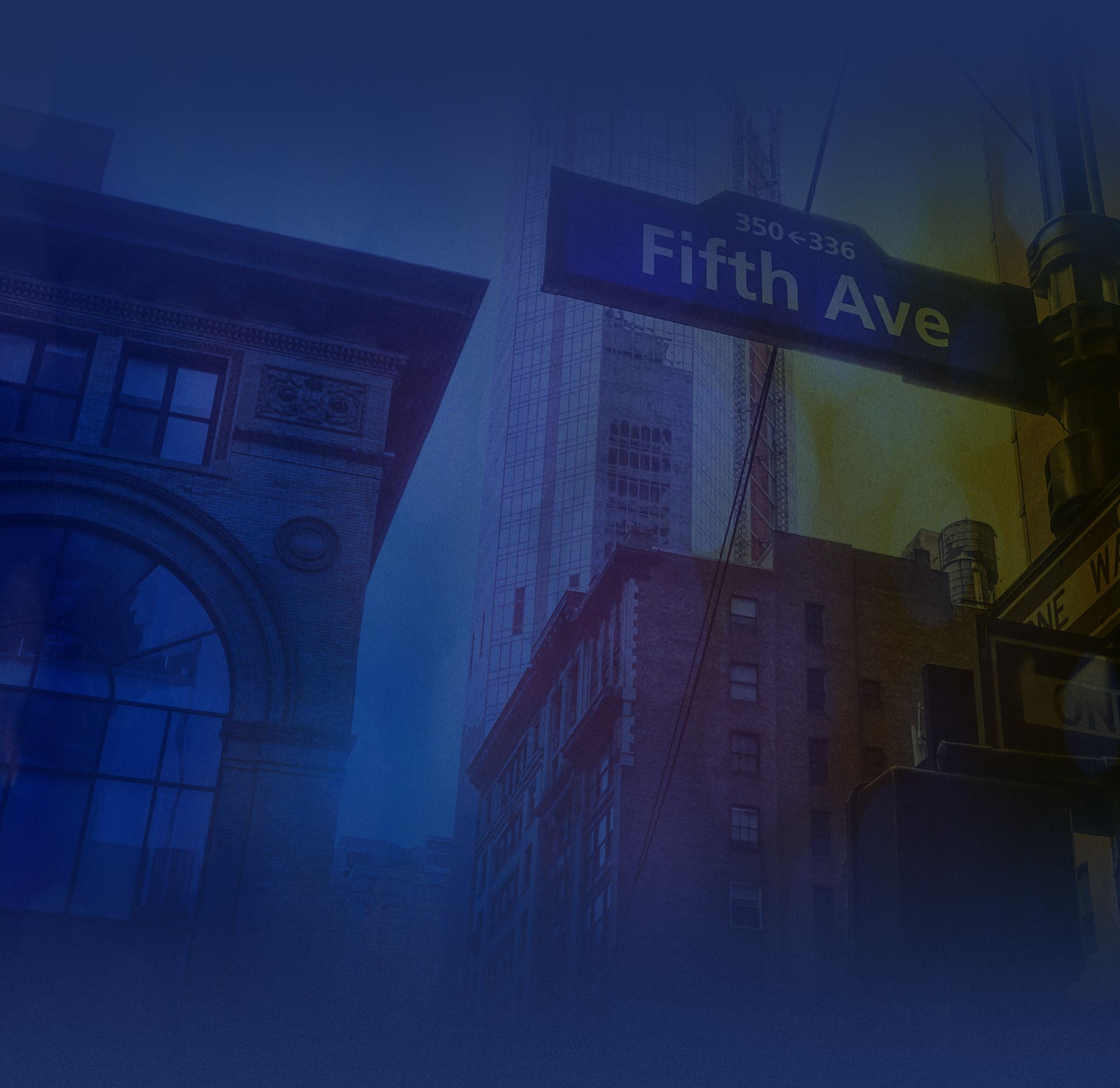
DUI
HELPING YOU DEFEND YOUR FUTURE & REPUTATION
Felony DWI Attorneys NYC
Providing Aggressive Defense in NYC
If you are arrested for felony DWI in New York City, you need to speak with an attorney as soon as possible. At Cohen Forman Barone P.C, we understand that a felony DWI charge can have a devastating effect on your life. We are dedicated to helping clients fight their charges and get their lives back on track.
Our firm understands the complex legal issues involved in DWI cases. We have handled hundreds of cases and can help you find the best possible outcome for your situation.
Contact us today at (212) 577-9314 to discuss your case with our NYC felony DWI attorneys.
What Constitutes Felony DWI in NY?
In New York City, a DWI or DWAI (Driving While Ability Impaired) offense is generally considered a misdemeanor. However, it can be elevated to a felony DWI charge under certain circumstances:
- Multiple DWAI convictions: If you have previously been convicted of DWI or DWAI (Driving While Ability Impaired) within the past ten years, a subsequent DWI offense can be charged as a felony.
- A second DWAI offense within 10 years can be charged as a Class E felony.
- A third DWAI offense within 10 years can be even more serious, charged as a Class D felony.
- Aggravated DWAI: Driving with a blood alcohol concentration (BAC) of 0.18% or higher can result in an aggravated DWI charge, which is a misdemeanor. However, if you have a prior DWI conviction within the past ten years, a subsequent offense with a high BAC can be charged as a Class E felony. A third offense is a Class D felony.
- DWAI causing serious injury: If you operate a motor vehicle while intoxicated and cause serious physical injury to another person, you can be charged with a Class E felony DWI. Serious injury refers to injuries that pose a substantial risk of death, cause disfigurement, or result in the loss or impairment of a body organ or limb.
- DWAI resulting in death: If your intoxicated driving leads to the death of another person, you can face Class D felony charges. This offense is commonly known as vehicular manslaughter or vehicular homicide.
- Leandra's Law: A first-time DWAI offense can be a felony if a child under 16 was in the car at the time. The specific felony class depends on whether the child was injured or killed in the incident.
New York Felony DWI Penalties
In New York, the penalties for a felony DWAI are severe and increase with each subsequent offense or with the presence of aggravating factors. Here are the typical penalties associated with felony DWI offenses:
Second Offense (Class E Felony)
- Fines: $1,000 to $5,000.
- Imprisonment: Up to 4 years in state prison.
- License Revocation: Minimum of one year.
- Probation: Up to 5 years.
- Mandatory Surcharge: Approximately $520.
- Mandatory Alcohol Screening and Assessment: Possible mandatory participation in a Victim Impact Panel and/or treatment program.
- Ignition Interlock Device: Required for at least one year.
Third Offense (Class D Felony)
- Fines: $2,000 to $10,000.
- Imprisonment: Up to 7 years in state prison.
- License Revocation: Minimum of one year, but the revocation can be longer depending on the circumstances and the judge’s discretion.
- Probation: Up to 5 years.
- Mandatory Surcharge: Approximately $520.
- Mandatory Alcohol Screening and Assessment: Possible mandatory participation in a Victim Impact Panel and/or treatment program.
- Ignition Interlock Device: Required for at least one year.
Aggravated DWI (Class D Felony)
- Fines: $2,000 to $10,000.
- Imprisonment: Up to 7 years in state prison.
- License Revocation: Minimum of 18 months.
- Probation: Up to 5 years.
- Mandatory Surcharge: Approximately $520.
- Mandatory Alcohol Screening and Assessment: Possible mandatory participation in a Victim Impact Panel and/or treatment program.
- Ignition Interlock Device: Required for at least one year.
Felony DWI with Serious Injury or Death
- Vehicular Assault (Class E Felony):
- Fines: Varies, typically substantial.
- Imprisonment: Up to 4 years.
- License Revocation: Typically, at least 1 year.
- Additional penalties and conditions as determined by the court.
- Aggravated Vehicular Assault (Class C Felony):
- Fines: Varies, typically substantial.
- Imprisonment: Up to 15 years.
- License Revocation: Typically, at least 18 months.
- Additional penalties and conditions as determined by the court.
- Vehicular Manslaughter (Class D Felony):
- Fines: Varies, typically substantial.
- Imprisonment: Up to 7 years.
- License Revocation: Typically, at least 18 months.
- Additional penalties and conditions as determined by the court.
- Aggravated Vehicular Homicide (Class B Felony):
- Fines: Varies, typically substantial.
- Imprisonment: Up to 25 years.
- License Revocation: Permanent revocation is possible.
- Additional penalties and conditions as determined by the court.
Additional Consequences for Felony DWAI in NY
- Permanent Criminal Record: A felony conviction remains on your record permanently.
- Increased Insurance Rates: Significant increases in car insurance premiums.
- Employment and Housing Challenges: Difficulty finding employment and housing due to the felony conviction.
- Loss of Professional Licenses: Possible revocation or suspension of professional licenses.
These penalties highlight the serious nature of felony DWI offenses in New York. It is crucial for individuals facing such charges to seek legal assistance from an experienced NYC felony DWI lawyer to navigate the complex legal system and work towards the best possible outcome given the circumstances.
Defense Strategies for NY Felony DUI Charges
Defending against felony DWI charges in New York requires a thorough understanding of the law, meticulous examination of the evidence, and strategic legal arguments. Common defense strategies that attorneys might employ include:
Challenging the Traffic Stop
- Lack of Probable Cause: Arguing that the officer did not have a valid reason to stop the vehicle. If the stop is deemed unlawful, any evidence obtained as a result may be suppressed.
- Violation of Rights: Claiming that the defendant’s constitutional rights were violated during the stop or arrest.
Questioning the Field Sobriety Tests
- Improper Administration: Demonstrating that the field sobriety tests were not administered according to standardized procedures.
- Physical Condition: Arguing that the defendant’s physical condition, medical issues, or other factors affected their performance on the tests.
Disputing Breathalyzer and Chemical Test Results
- Calibration and Maintenance: Showing that the breathalyzer or other chemical testing devices were not properly calibrated or maintained.
- Improper Procedure: Arguing that the tests were not conducted in compliance with legal and regulatory requirements.
- Contamination: Suggesting that the samples were contaminated or improperly handled.
Medical Conditions and Substances
- Medical Conditions: Presenting evidence that the defendant has a medical condition that could cause symptoms similar to intoxication (e.g., diabetes, neurological disorders).
- Medications: Arguing that prescription medications or other legal substances could have influenced the test results or the defendant’s behavior.
Eyewitness Testimony
- Contradictory Accounts: Using eyewitnesses to contradict the police officer’s version of events.
- Character Witnesses: Bringing in character witnesses to testify about the defendant’s behavior and sobriety prior to the arrest.
Video Evidence
- Dashcam or Bodycam Footage: Analyzing police dashcam or bodycam footage to identify inconsistencies or procedural errors.
- Surveillance Footage: Utilizing surveillance footage from nearby businesses or traffic cameras to support the defense.
Questioning the Officer’s Credibility
- History of Misconduct: Investigating the arresting officer’s disciplinary record for any history of misconduct or false reports.
- Bias or Error: Arguing that the officer may have been biased or mistaken in their observations and conclusions.
Constitutional Defenses
- Miranda Rights: Asserting that the defendant’s Miranda rights were violated if they were not properly informed of their rights during the arrest.
- Illegal Search and Seizure: Challenging any evidence obtained through illegal search and seizure.
Procedural Errors
- Documentation Errors: Identifying and highlighting errors or inconsistencies in the police reports and other official documentation.
- Chain of Custody: Questioning the chain of custody for the evidence to ensure it was properly handled and preserved.
Necessity or Duress
- Emergency Situation: Arguing that the defendant was forced to drive due to an emergency situation (e.g., to avoid harm or to seek urgent medical attention).
Plea Bargaining
- Reduced Charges: Negotiating with the prosecution to reduce the charges to a misdemeanor or to seek alternative sentencing options, such as probation or treatment programs.
Technical Defenses
- Expert Testimony: Employing experts to challenge the validity of the prosecution’s evidence or to provide alternative explanations for the defendant’s behavior or test results.

Contact Our NYC Felony DWI Attorneys Today
Due to the severe penalties you face if convicted of a felony DWI in New York City, it is worth hiring an experienced criminal defense attorney to help you either get your charges/penalties reduced or your entire case dismissed. Do not hesitate to let our firm fight for you!
Call (212) 577-9314 or fill our out online contact form today.


Our Testimonials
Former Clients Share Their Experience with Our Firm
-
“Post Conviction Client” - Roman
-
“Immigration Client” - Navarro Family
-
“Criminal Defense Client” - JT.
-
“Matrimonial Client” - Marcel K.


